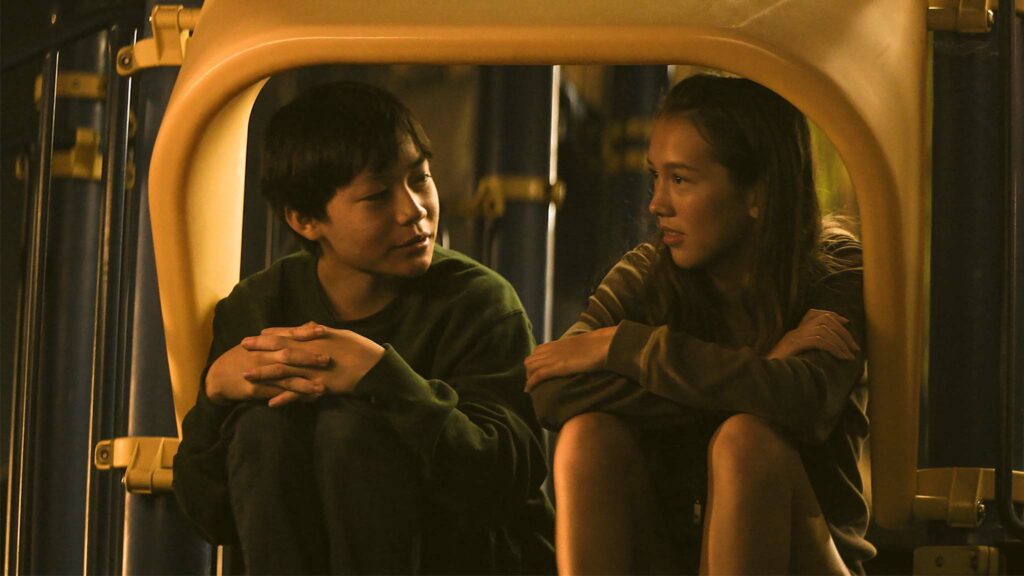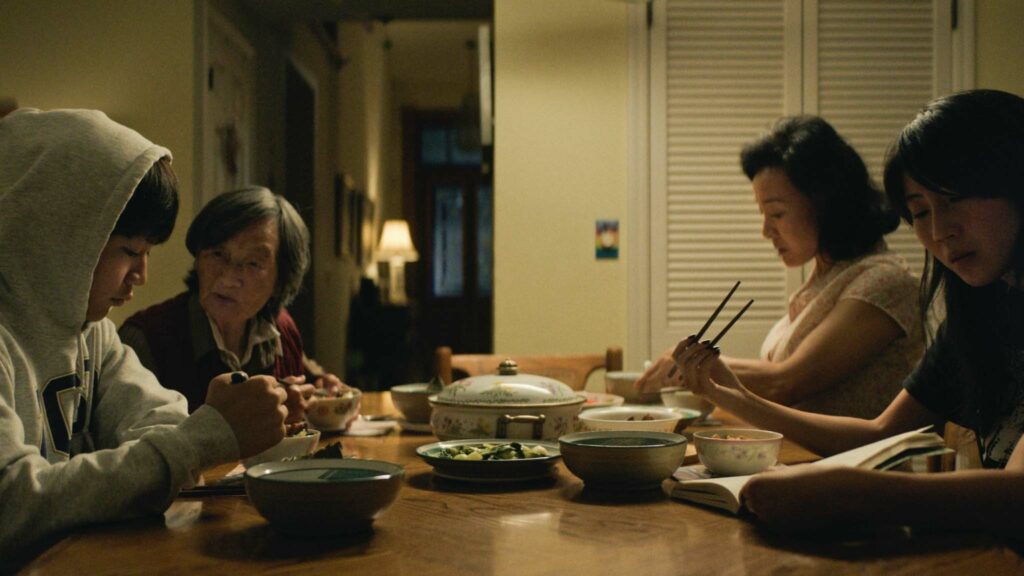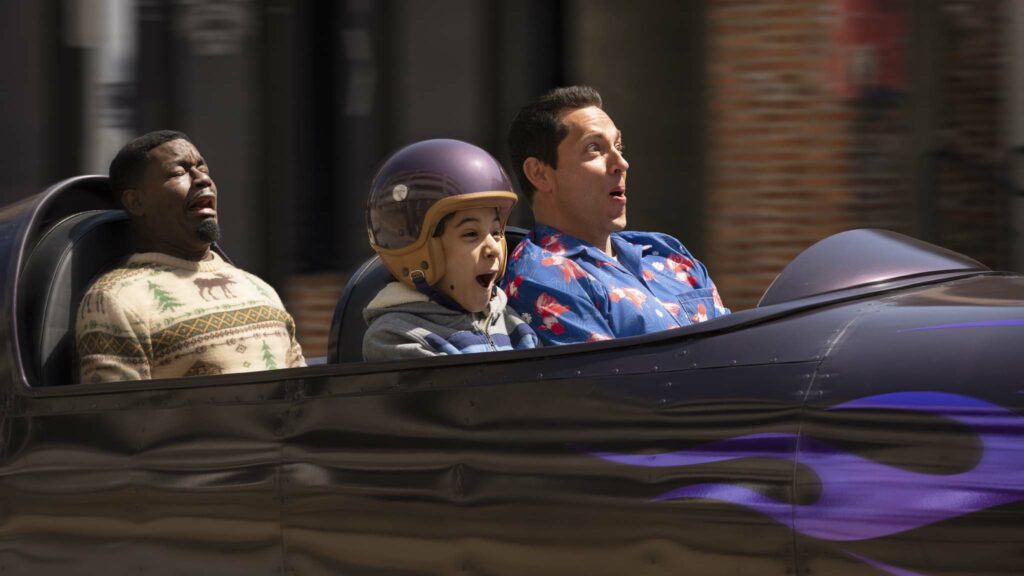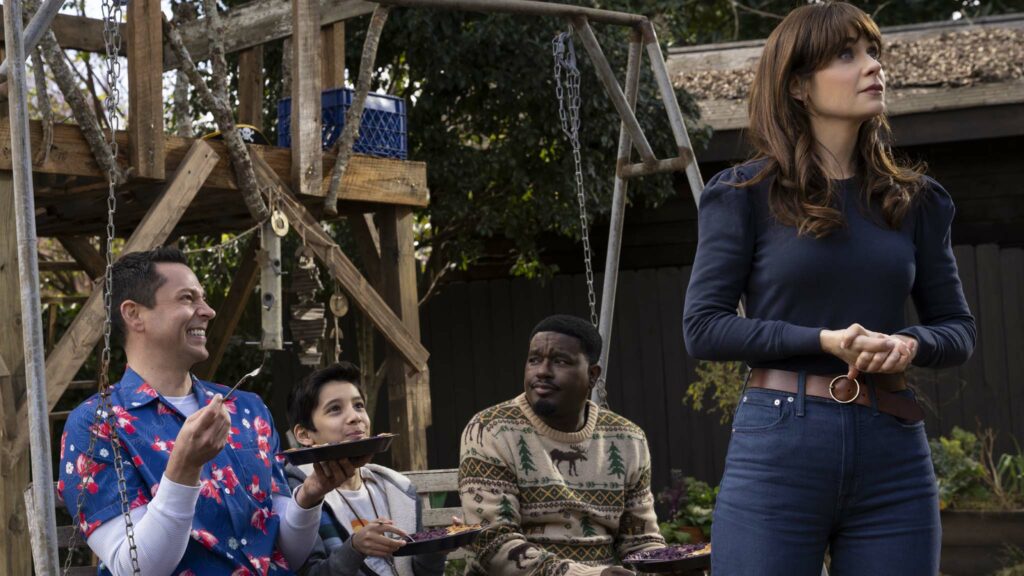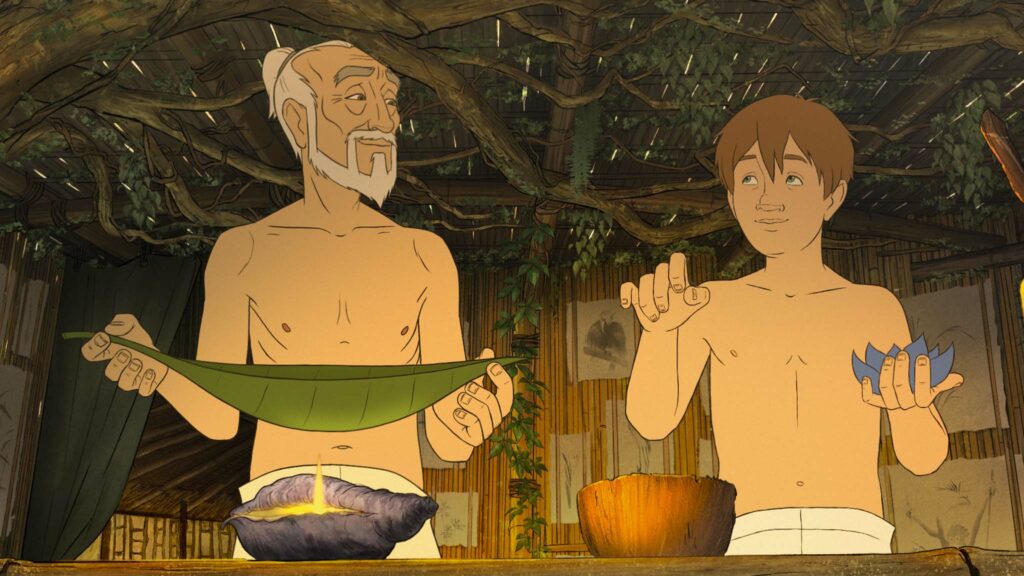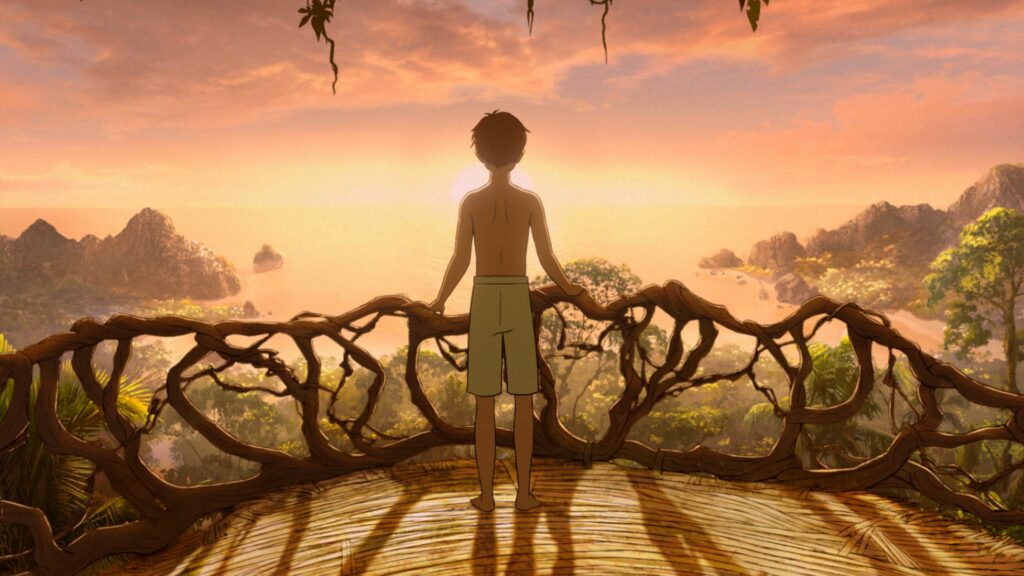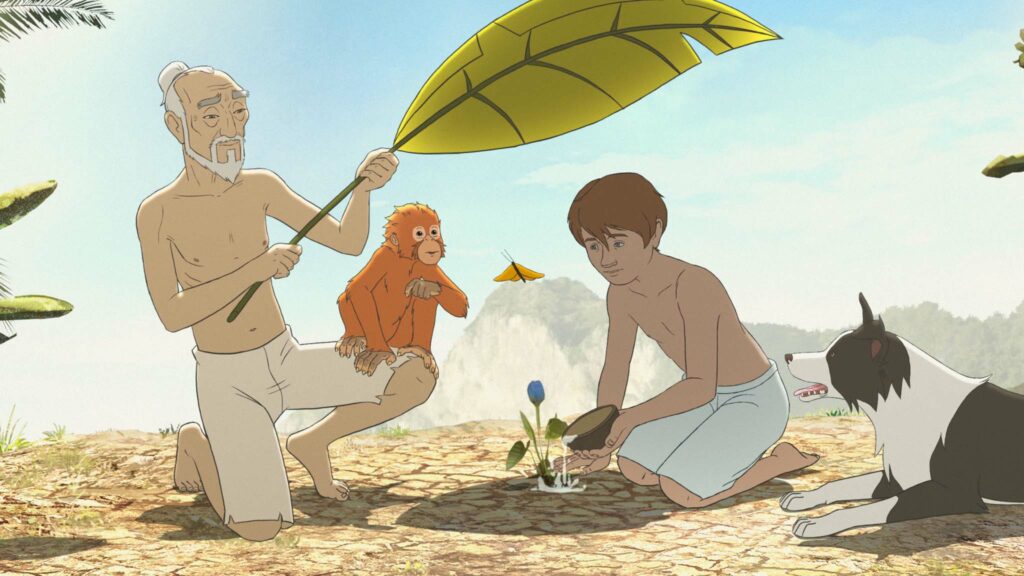Comedy
Didi (15)
Review: Writer-director Sean Wang was Oscar-nominated for his heartwarming 2023 short documentary Nai Nai & Wai Po, which chronicled the day-to-day lives of his two grandmothers during the Covid pandemic in their shared home in Fremont, California. Cultures clash and familial bonds are also cherished in his wonderful debut feature, which draws inspiration from his upbringing to glimpse the messiness of boyhood through the eyes of a 13-year-old Taiwanese American son of immigrant parents.
Set in the summer of 2008 when Facebook surpassed Myspace as the most-visited social media website and Barack Obama was fresh on the campaign trail for the White House, Didi is an unabashed love letter to the topsy-turvy relationship between mothers and their children. Wang’s script elegantly distils the exquisite pain and occasional hard-fought victories of adolescence with wry humour and piercing candour, recalling films such as Stand By Me and Eighth Grade and the TV series My So-Called Life.
Izaac Wang (no relation) perfectly captures the awkwardness, brashness and insecurity of a teenager clumsily navigating the real and online worlds before he has a clear sense of his authentic self. He gels magnificently with veteran Chinese American actress Joan Chen, playing his mother. Their scenes together are deeply moving but never feel contrived or emotionally manipulative.
Chris Wang (Izaac Wang) is known affectionately as Didi (a Mandarin term for “little brother”) to family and friends in Fremont, where he has recently completed middle school. In the long hot summer before he nervously transitions to high school, Didi plays pranks with friends Soup (Aaron Chang) and Fahad (Raul Dial) such as blowing up neighbours’ mailboxes, pursues his love of skateboarding and seeks to impress his classmate crush, Madi (Mahaela Park). He also spars with older sister Vivian (Shirley Chen), who is poised to fly the nest for her freshman year at college.
The one person who supports him unerringly is his mother Chungsing (Joan Chen), who singlehandedly holds down the fort while her husband works overseas. Nai Nai (Chang Li Hua, director Wang’s real-life 86-year-old maternal grandmother), openly criticises daughter-in-law Chungsing’s parenting and insists the children should eat more fruit to improve the regularity of their bowel movements. Tension simmers within the Wang household and youngest member Didi blunders through adolescence, unaware that each embarrassment is an essential part of growing up.
Didi sets itself apart by contemplating the persistent cultural tug of war between east and west for a boy, who is painfully self-conscious about how he looks and whether he will ever fit in. Wang’s semi-autobiographical picture instinctively knows when to trade in gentle comedy to salve a fresh wound, galvanised by Izaac Wang’s unselfconscious, layered lead performance. There is universal truth and relatability in this boy’s life.
Find Didi in the cinemas
Comedy
Harold And The Purple Crayon (U)
Review: In 1955, when illustrator Crockett Johnson published his children’s book Harold And The Purple Crayon, the idea of a writing implement that conjures solid objects into existence by doodling in the air must have seemed like the height of fantastical whimsy. Almost 70 years later, Johnson’s wild imaginings are becoming a reality with 3D printing pens, which extrude strings of colourful, non-toxic plastic to painstakingly realise anything a febrile young mind desires. Technological invention still pales next to the magical coloured wax in director Carlos Saldanha’s cheerful and briskly paced adventure, which transplants immortal cartoon characters into a cynical live-action world where every second is precious and fate can be cruel.
“When you’re young, you have all kinds of dreams, then the world kicks it out of you,” laments Zooey Deschanel’s single mother, who is raising a young son alone after losing her husband. Screenwriters David Guion and Michael Handelman lean heavily into the undimmable power of the imagination, peppering a haphazard central odyssey with otherworldly flourishes including a villainous librarian, who dreams of ruling over the Lord Of The Rings-lite realm described in his unpublished novel. Shazam! leading man Zachary Levi radiates unwavering optimism and childlike wonder in the title role and he catalyses delightful on-screen rapport with young co-star Benjamin Bottani, whose best friend is an imaginary dragon named Carl, gifted to him by his late father.
Harold (Levi) and pals Moose (Lil Rel Howery) and Porcupine (Tanya Reynolds) live in a hand-drawn world of limitless possibilities. The trio become concerned when the Old Man (voiced by Alfred Molina), who narrates their illustrated existence, suddenly falls silent. Using his magical purple crayon, Harold draws a door to the real world and tumbles into the present day as a flesh-and-blood man, who collides head-on with widow Terry (Deschanel) and her young son Mel (Bottani).
Mel promises to help Harold track down the Old Man in exchange for making Terry smile again. Consequently, Harold wields his purple crayon with panache to perform simple yet heroic feats. Jealous rival Gary the librarian (Jemaine Clement) covets the crayon to kickstart his literary ambitions and enslave Terry as his otherworldly muse.
Harold And The Purple Crayon is a charming, family-friendly escapade that treads lightly when dealing with themes of grief and loss. Clement chews scenery with fervour as the misguided antagonist, who craves the magical wax for personal gain. “You’re supposed to use it to make people happy,” scolds Harold. “Revenge will make me happy!” snarls Gary. Smiles abound throughout Saldanha’s undemanding and heartfelt picture, which abides by simple storytelling conventions to punish cruelty and selfishness and reward kindness and generosity. Please ask Harold to draw a box of tissues.
Find Harold And The Purple Crayon in the cinemas
Animation
Kensuke's Kingdom (PG)
Review: After a particularly stressful day at work, a fractious family gathering or the sensory overload of day-to-day urban living, it’s easy to romanticise the tranquillity of sun-kissed seclusion on a supposedly deserted island. For stranded fictional characters, there’s often trouble in paradise. Tom Hanks’ systems analyst loses his beloved volleyball companion Wilson and almost his sanity in Cast Away; surviving passengers of crashed Oceanic Airlines Flight 815 encounter otherworldly foes and a mind-boggling final episode in Lost; paranoia and mob rule run rife in Lord Of The Flies; and all that glisters isn’t gold in Treasure Island.
Faithfully adapted by screenwriter Frank Cottrell-Boyce from Michael Morpurgo’s children’s novel, Kensuke’s Kingdom is a poignant animated drama which strands a young boy in the Indian Ocean with a canine companion. A touching friendship with the island’s other residents including a family of orangutans expands into a wider discussion of conservation, co-existence and co-operation, rendered by around 200 artists in a combination of expressive 2D hand-drawn and 3D animation with photographic real elements. Kensuke’s Kingdom took two and a half years to realise under the direction of Kirk Hendry and Neil Boyle and every minute resonates, especially a watercolour flashback that tastefully but powerfully depicts the bombing of Nagasaki to illuminate the title character’s heartrending backstory.
Eleven-year-old Michael (voiced by Aaron MacGregor) begrudges his parents (Cillian Murphy, Sally Hawkins) after they both lose their jobs and relocate the family, including Michael’s older sister Becky (Raffey Cassidy), onto a sailing boat called the Peggy Sue for a round-the-world adventure. “Before you know it the Peggy Sue will feel just like home,” Michael’s mother cheerfully promises. The boy secretly stows pet dog Stella in a cupboard at the bow of the vessel.
Following rendezvous for supplies in Lisbon, Gran Canaria and Dakar, Peggy Sue heads into the eye of a storm and a large wave sweeps Michael and Stella overboard. They wash up on a remote island. “Help me,” Michael whispers aloud to the universe. The next morning, coconut milk and slivers of raw fish magically appear and Michael discovers he shares the island with a Japanese man named Kensuke (Ken Watanabe), who has secretly lived in isolation since the Second World War.
Kensuke’s Kingdom confidently sets sail through Morpurgo’s text and illustrates mankind’s plunderous relationship with the natural world in a way that will be easily accessible for audiences of all ages. A family-friendly 84-minute running time is another buoyancy aid. Composer Stuart Hancock’s score ebbs and flows beautifully in extended silences between effective vocal performances and increases in urgency when invaders materialise on the shimmering horizon. Against seemingly overwhelming odds, one tearful child separated from family and society can make a profound difference.
Find Kensuke's Kingdom in the cinemas


